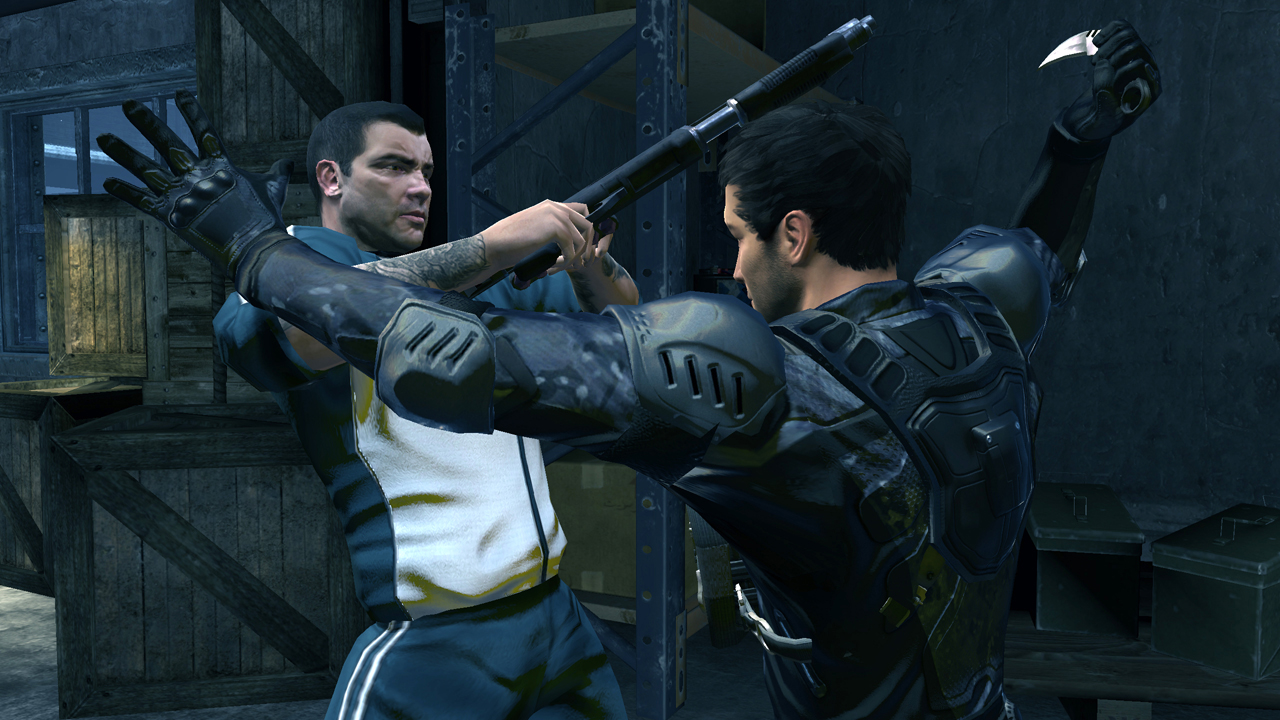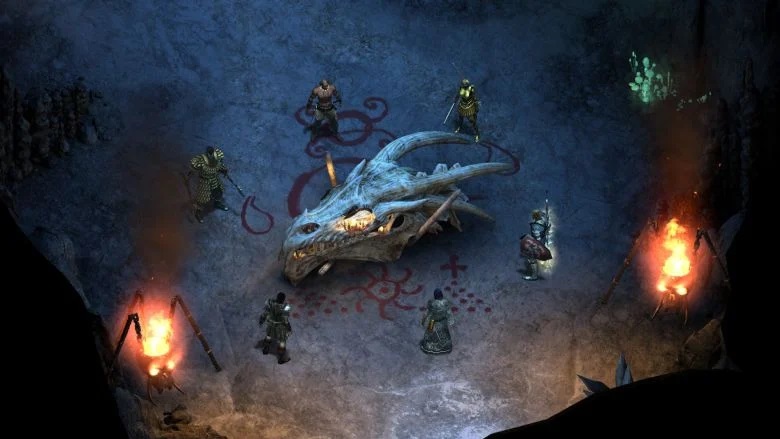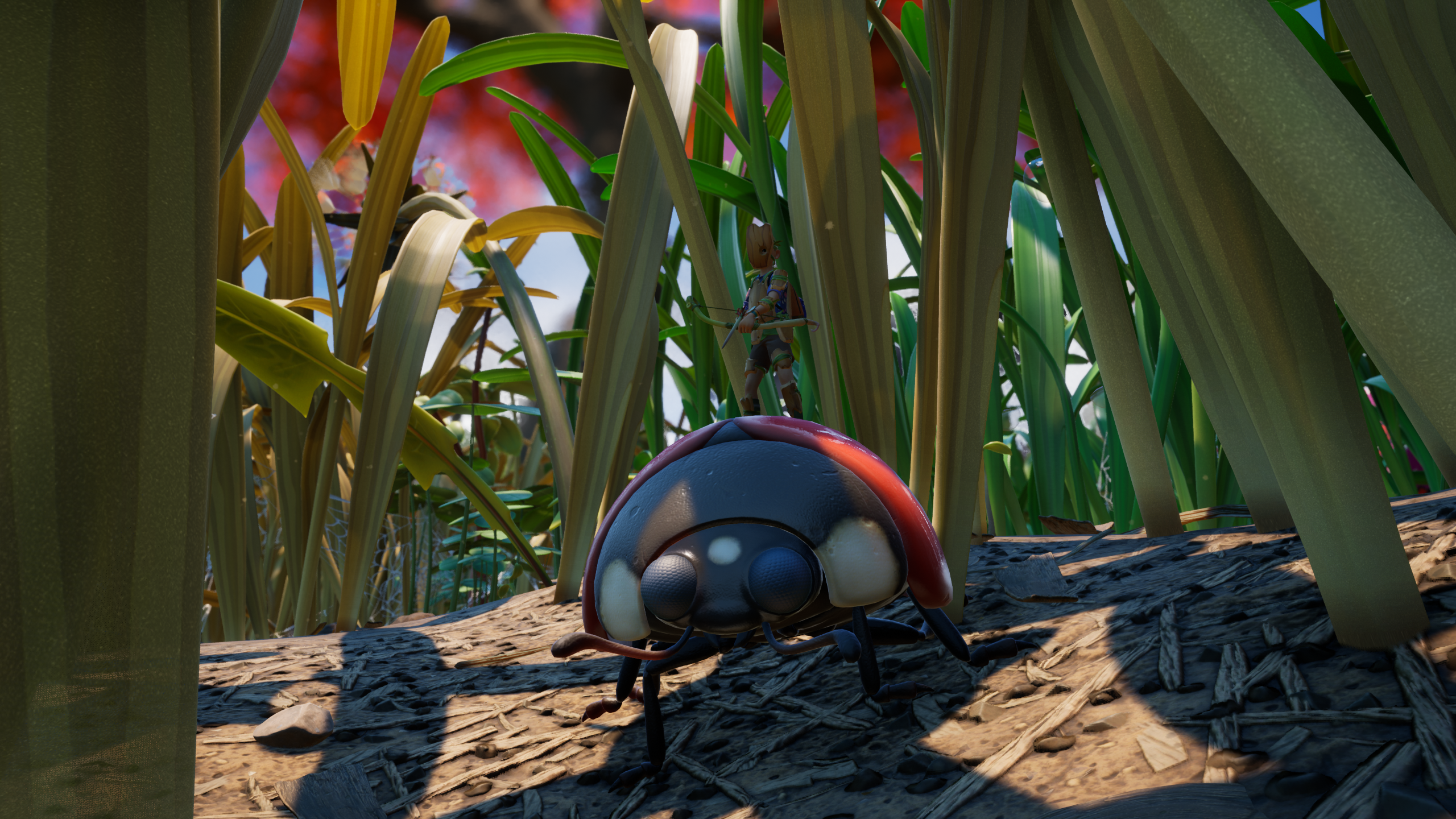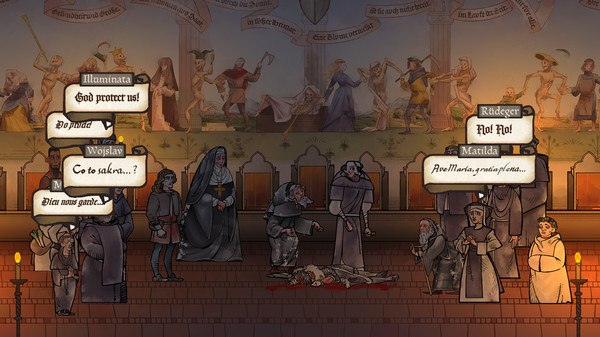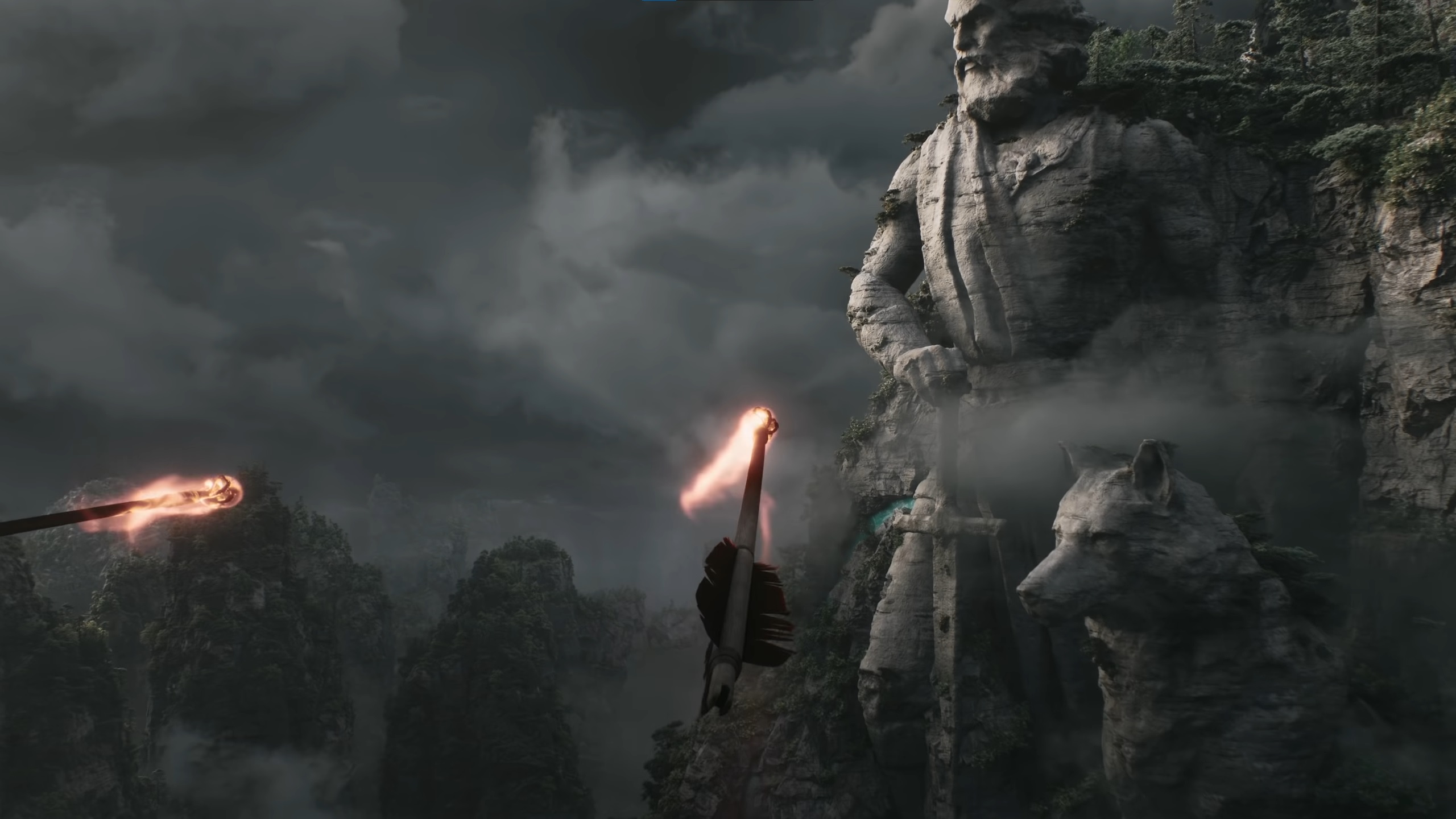Obsidian just had one of its best years ever, without releasing a single RPG
It's one of the most prominent RPG developers around, but now it's spreading its wings.
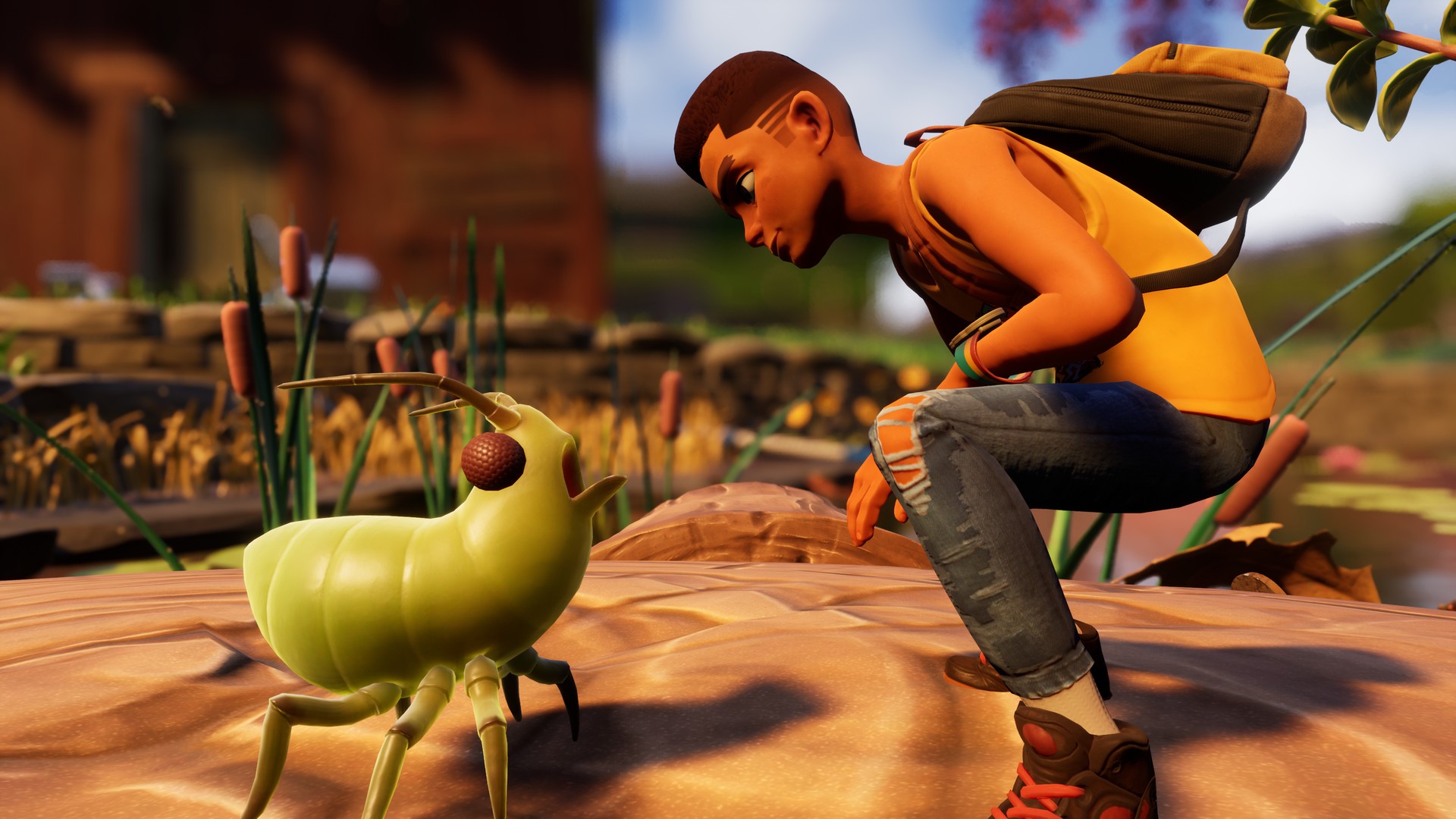
Keep up to date with the most important stories and the best deals, as picked by the PC Gamer team.
You are now subscribed
Your newsletter sign-up was successful
Want to add more newsletters?

Every Friday
GamesRadar+
Your weekly update on everything you could ever want to know about the games you already love, games we know you're going to love in the near future, and tales from the communities that surround them.

Every Thursday
GTA 6 O'clock
Our special GTA 6 newsletter, with breaking news, insider info, and rumor analysis from the award-winning GTA 6 O'clock experts.

Every Friday
Knowledge
From the creators of Edge: A weekly videogame industry newsletter with analysis from expert writers, guidance from professionals, and insight into what's on the horizon.

Every Thursday
The Setup
Hardware nerds unite, sign up to our free tech newsletter for a weekly digest of the hottest new tech, the latest gadgets on the test bench, and much more.

Every Wednesday
Switch 2 Spotlight
Sign up to our new Switch 2 newsletter, where we bring you the latest talking points on Nintendo's new console each week, bring you up to date on the news, and recommend what games to play.

Every Saturday
The Watchlist
Subscribe for a weekly digest of the movie and TV news that matters, direct to your inbox. From first-look trailers, interviews, reviews and explainers, we've got you covered.

Once a month
SFX
Get sneak previews, exclusive competitions and details of special events each month!
Obsidian Entertainment released not one but two of my favourite games of 2022. It shouldn't be all that surprising, given that the studio has been keeping me entertained for the better part of 20 years. Formed by former Black Isle developers who had grown dissatisfied with struggling publisher Interplay, it went on to create several GOATs, including Fallout New Vegas and Knights of the Old Republic 2, establishing itself as one of the best RPG developers around. What's surprising, then, is that neither of its 2022 releases were RPGs.
Roleplaying is woven into the fabric of Obsidian. The genre is an integral part of its legacy and continues to be what the studio is best known for—whether it's roleplaying as a super spy in the singular Alpha Protocol or traipsing through fantasy realms in the nostalgic Pillars of Eternity. Only BioWare has an RPG history this impressive. But while Obsidian has always been good for RPGs, RPGs haven't always been good for Obsidian.
Lore time
Until quite recently, Obsidian's games had a reputation for being a bit rough around the edges. KotOR 2 in particular was infamous for its bugs and cuts, but every RPG the studio released came with a mountain of issues. The narrative that formed around these exceptional but janky games was one that placed most of the blame on publishers, suggesting that, had Sega, Bethesda or LucasArts given Obsidian more time or more resources, these problems could have been avoided. The reality is undoubtedly more complicated.
This led to Alpha Protocol not being appreciated in its time, but most of its RPGs were successes—though not always successful enough. Despite New Vegas often being hailed as the greatest Fallout game, the team missed out on a bonus because the metacritic score was too low. By one point. It was 84, but needed to be 85 before Bethesda would pay out. It just seemed unnecessarily cruel.
Then came Pillars of Eternity. Obsidian went back to its roots with an isometric fantasy CRPG that evoked Baldur's Gate while also very much doing its own thing. It was brilliant, and for once the conversations surrounding it weren't focused on bugs or performance issues. With publisher Paradox, it seemed like Obsidian had finally done it. The good fortune didn't last.
After surprising everyone by making a genuinely great South Park RPG in The Stick of Truth for Ubisoft, Obsidian returned to CRPGs with Tyranny, again with Paradox. It was well-liked, and by making you a member of a world-conquering army led by a shifty overlord, the premise was a novel one. But it missed its sales target, and a breakdown in the relationship with Paradox scuppered any hope of a much-needed sequel. Instead, we were left with an unfinished story that ended abruptly.
Pillars of Eternity's future also looks bleak now. The sequel, high-seas adventure Deadfire, was an impressive follow-up, but nobody bothered playing it. It was a big flop. Big enough that the series is likely dead. The cause is a genuine mystery. Its predecessor was popular, and I honestly don't trust anyone who doesn't salivate at the prospect of a pirate RPG, but people are weird.
Keep up to date with the most important stories and the best deals, as picked by the PC Gamer team.
Equally as weird is the fact that The Outer Worlds, Obsidian's most recent RPG, is one of its biggest games. It's fine, I guess? It's got all the stuff people like about Obsidian RPGs, but it was just missing this vital spark, like it was doing a good-but-not-great impression of New Vegas. Unlike Tyranny and Pillars 2, it's actually getting a sequel, but I find it hard to muster much enthusiasm for it.
Now for something completely different
So its history as an RPG developer has been a tumultuous one. But at no point did I ever consider that Obsidian might make a game that wasn't an RPG—aside from that tank MMO everyone forgot about. When Grounded was unveiled, then, I was at first surprised, and then dismayed. A survival game? God no. The cynic in me couldn't shake the sense that new owner Microsoft was just making the team chase the latest fads. Maybe that was the case, but now I don't care, since Grounded is flipping fantastic.
A triumph of setting and theme, Grounded captures the energy of classic Saturday morning cartoons and serves as a time machine, tossing you back into the '90s. I was born in '85, so playing Grounded was like being transported back to my favourite childhood summers. In this giant, spider-infested garden, I was finally convinced that survival games could be fun.
After a stint in Xbox's version of early access, it hit 1.0 last year, the end result is as good as any RPG Obsidian has ever made. And it showed how Obsidian's talents with world-building and systems design could benefit more than just RPGs. You're not an international super spy jetting all over the world, or an elf pirate commanding a ship and trying to untangle the moral conundrum of colonialism, but it turns out that a suburban garden can be just as compelling.
Despite the current popularity of survival games, this was a big risk. It's an oversaturated market and, traditionally, Obsidian's audience are RPG fans, so the studio's reputation isn't really a bonus here. When fellow RPG developer BioWare made its own pivot with Anthem, which was technically still an action-RPG, but was really more of a crappy live service shooter, it famously didn't go so well.
As a prominent part of Xbox's Game Pass library, Grounded managed to ensnare a whopping 10 million players even before it was finished, absolutely smashing the numbers of most of its RPGs. Its success has inspired a cartoon, which is currently in development, and I suspect we'll be seeing more of Grounded in the future. But that's not all Obsidian's been working on, and 2022 also saw the release of a second game, completely distinct from Grounded, but again not an RPG.
Pentiment arguably feels more like an Obsidian game—it's filled to the brim with compelling conversations and character building—but it's also a lot more out-there than Grounded. Sandbox survival games are very much in at the moment, but the same cannot be said for an art history lesson set in the Holy Roman Empire. With Pentiment, Obsidian has made something that feels genuinely unique, and while it might not be as trendy a crafty survival adventure, there are few games so meticulously designed to seduce me. It's a game that celebrates not just art, but even fonts, turning every conversation into a lesson in historical handwriting, and it's absolutely laden with historical asides that will quickly send you down a Wikipedia rabbit hole.
Even though it's ostensibly a crime-solving adventure game, director Josh Sawyer and his team still found a way to push the things that the studio is best known for, refining the way it lets you develop your character's personality and moral code. There's no good or evil binary here, or any moral judgments, leaving room for all sorts of nuance. I started out as a charming smarty-pants, for instance, hoping that my way with words would make me endearing. Chatting with a nobleman, this was very much the case, but when I attempted to use the same tricks while chatting to some peasants, I merely made it clear that I was an outsider with some strange thoughts about the world.
Pentiment makes it so that you can be an idiot who keeps cocking up and you'll still get to experience a riveting story, but if you want to develop strong bonds with these characters you'll need to put yourself in their position, considering the historical setting and their place in it. Ultimately, it doesn't come down to dice rolls or skills, but how well you know these people. So when you make a choice, there's all this context surrounding it, letting you roleplay as a kind character who can still act like an asshole for good reasons. When you're down in the dumps, sometimes all you need is a crime-solving artist to call you a twat.
Grounded and Pentiment have shown us just how much range Obsidian really has. Now, it's always a bad idea to present a game developer as a monolith; the studio that created Alpha Protocol in 2010 is not the same as the one that released Grounded in 2022. But nor do developers get rid of everyone and reinvent themselves with every game. Sawyer, for instance, started out with Black Isle working on Icewind Dale, became a game director with New Vegas, then led the team on Pentiment. You can still look at Obsidian's newest games and chart a path all the way back to the studio's origins.
Back to the future
After such a great year, I'm vibrating with anticipation over what's next. The immediate future, admittedly, does seem a bit more conventional. There's the arbitrary sequel to The Outer Worlds, and then another first-person RPG, Avowed. The latter is mostly a mystery at this point, though we know it's set in the same world as Pillars, so it's probably as close as we'll get to a proper sequel. Following the failure of Deadfire, Obsidian got worried that isometric CRPGs were going out of style again, hence the first-person perspective.
With two big first-person RPGs on the go, I do hope Obsidian doesn't forget about what it did in 2022. This isn't to say I'm not keen for more Obsidian RPGs—I'll always be eager for more—but now that it's clear it can work some real magic when it spreads its wings, I'm even more ravenous for big surprises that are out of its traditional wheelhouse. RPGs, of course, are still ripe for experimentation and recontextualising. Disco Elysium ripped up the playbook and gave us one of the best games ever made, and more recently we've had Midnight Suns, giving us Firaxis's systems-heavy, friendship-focused take on the genre. And after Pentiment and Grounded, Obsidian now has a lot more experience to draw from, and new directions it might want to explore in an RPG.
However The Outer Worlds 2 and Avowed turn out, right now Obsidian is one of the most exciting developers around. Fingers crossed the momentum holds.

Fraser is the UK online editor and has actually met The Internet in person. With over a decade of experience, he's been around the block a few times, serving as a freelancer, news editor and prolific reviewer. Strategy games have been a 30-year-long obsession, from tiny RTSs to sprawling political sims, and he never turns down the chance to rave about Total War or Crusader Kings. He's also been known to set up shop in the latest MMO and likes to wind down with an endlessly deep, systemic RPG. These days, when he's not editing, he can usually be found writing features that are 1,000 words too long or talking about his dog.
